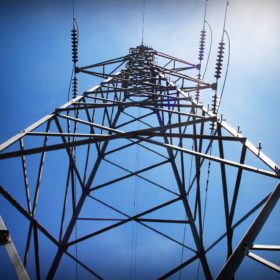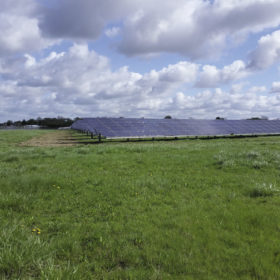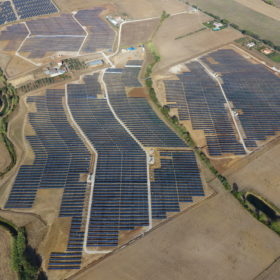Bringing clean African electrons to Europe
A raft of ambitious interconnection projects has been announced to bring African electrons to European shores. While there are financial and supply chain challenges to overcome, the renewables potential on offer across North Africa is exciting investors.
Home solar will eventually triumph in the UK
The United Kingdom is playing catch-up with many of its European neighbors when it comes to solar but recent signs have been hugely promising and the nation remains primed for a solar revolution.
Weekend Read: Cash pours in to rooftop solar
The growth of European rooftop solar continues this year, with innovative companies raising capital to develop the market. It’s an encouraging trend with the potential to accelerate rooftop solar adoption. pv magazine correspondent Valerie Thompson takes a closer look.
UK offers households up to $7,500 off heat pump costs
Homes and small businesses in England and Wales will be able to claim a discount off installation costs from a fund that will allocate $188 million annually as part of the subsidy program.
UK considers reform of renewables subsidy regimes
A conference about the UK’s electricity market showed organizations are considering the future of the country’s energy sector and how to achieve a net zero economy.
UK retailers sign 130 MW of solar PPAs as electricity prices surge
UK electricity retailers are ramping up their efforts to sign power purchase agreements for PV projects.
Hydrogen hub proposal for Scottish isles
A consortium of investors is evaluating a hydrogen production project on the Orkney Islands to the north of Scotland, that would transform the island into a hub for hydrogen production, taking advantage of abundant wind resources nearby in the North Sea.
Octopus Energy, RES to invest in UK green hydrogen economy
Octopus Energy and RES have announced a new partnership under which they plan to invest GBP 3 billion in the construction of green hydrogen plants throughout the United Kingdom by 2030.
Covid-19 weekly round-up: Residential systems in Italy will get a 110% tax rebate and UK consumers are being paid to turn appliances on as coronavirus turns the energy world upside down
Plus, Australia’s Greens want renewables front and center of the post Covid-19 economy and Mexican plant owners are overturning a politically-motivated ban on clean energy, however, Indian developer Acme solar says pandemic delays warrant it reneging on the terms of the record-low solar price agreement it signed.
Octopus adds 300,000 customers and launches community energy JV
Another large scale transaction by the electricity and gas supplier has enhanced its standing in the U.K. energy market, with the business now counting more than one million customers.










